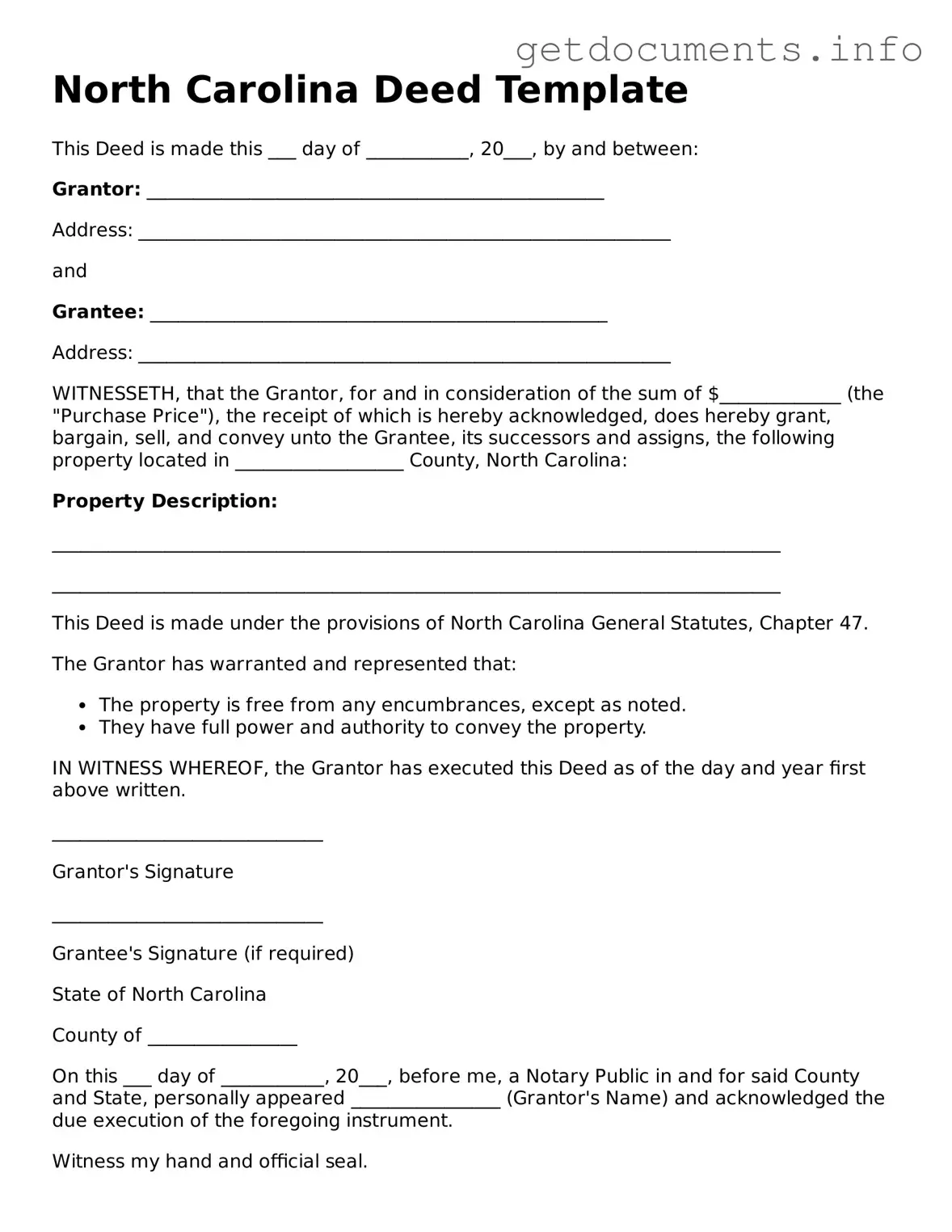Free Deed Template for North Carolina
A North Carolina Deed form is a legal document that facilitates the transfer of property ownership from one party to another within the state. This form outlines essential details such as the names of the parties involved, a description of the property, and the terms of the transfer. To ensure a smooth transaction, it is important to fill out the form accurately; you can start by clicking the button below.
Access Deed Editor

Free Deed Template for North Carolina
Access Deed Editor
Got places to be? Complete the form fast
Fill out Deed online and avoid printing or scanning.
Access Deed Editor
or
⇩ PDF File
